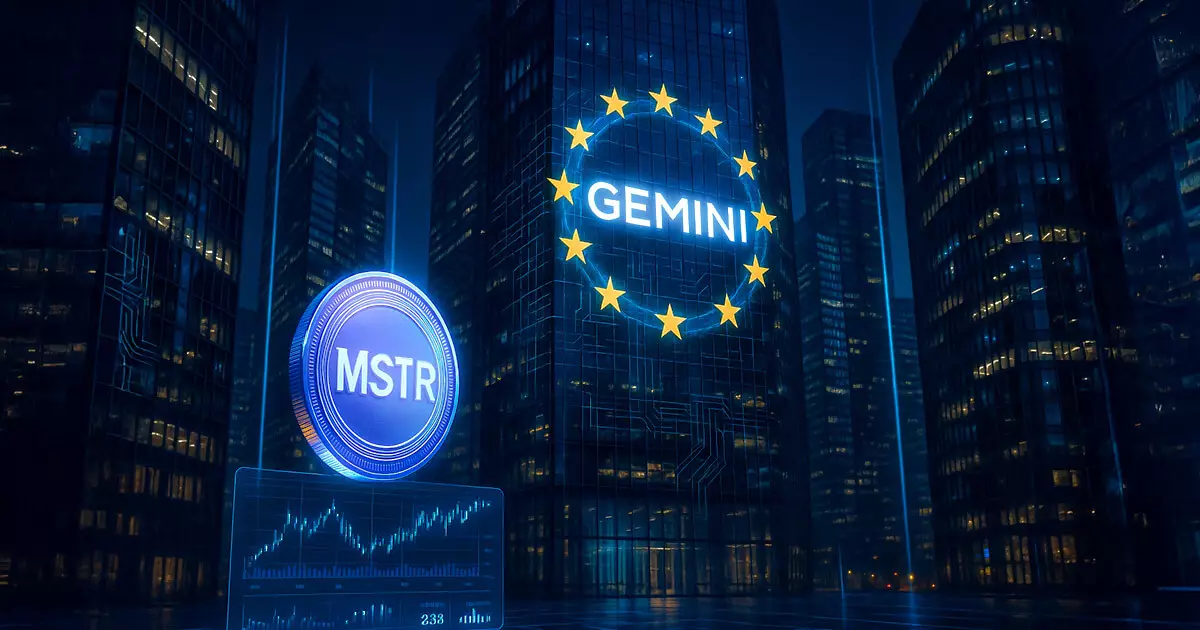Gemini’s recent introduction of tokenized shares of Strategy (MSTR) for European customers represents more than just another crypto innovation—it signals a bold attempt to dismantle long-standing barriers in global investing. By leveraging blockchain technology, Gemini empowers anyone with an internet connection and a smartphone to buy fractional ownership of U.S. stocks. This move challenges the traditional brokerage model, which often limits market participation due to hefty fees, regional restrictions, and clunky settlement processes.
Offering these tokenized equities on Arbitrum initially—and planning expansion to multiple blockchain networks—Gemini underlines their ambition to bring U.S. equities to global investors anytime, anywhere. This 24/7 accessibility contrasts sharply with stock markets’ usual 9-to-5 schedules and cumbersome cross-border settlement delays, promising a level of liquidity and immediacy that’s long overdue in the investment world.
Why Tokenized Stocks Represent a Paradigm Shift
The tokenized shares Gemini offers are not mere replicas; they are backed by real assets, carrying equivalent economic rights to traditional shares in jurisdictions that allow it. This is a crucial distinction because it preserves the fundamental investor protections required for meaningful financial participation. Additionally, fractional ownership through tokens lowers the entry barriers for retail investors, enabling exposure to high-value stocks without needing to buy whole shares or navigate complex brokerage platforms.
Furthermore, blockchain-based settlement eliminates middlemen and paperwork, reducing friction and costs. Investors gain direct on-chain custody, improving transparency and reducing settlement risk, which have traditionally burdened cross-border equity trades. This could turn global investing from a privilege of the wealthy or institutional players into a more democratic, efficient process.
Addressing the Regulatory Balancing Act
Gemini’s efforts are particularly noteworthy given that they operate within compliance-focused jurisdictions. The challenge of tokenizing securities has always rested on navigating conflicting regulatory frameworks that prioritize investor protection but often stifle innovation. Gemini’s strategy to partner with a tokenization platform and launch in regions with clear regulatory oversight suggests a pragmatic route to fusing blockchain innovation with the demands of financial regulators.
This approach contrasts with riskier, less regulated tokenized stock projects, which often flirt with legal ambiguities. Gemini’s model advocates that blockchain-based innovation need not come at the expense of regulatory compliance—a key message for the broader adoption of digital asset infrastructure within established financial frameworks.
Potential Pitfalls and Overhyped Promises
While the promise of democratizing global equity access is alluring, it’s essential to scrutinize whether tokenized stocks truly solve more problems than they create. First, fractionalizing stocks and operating on blockchain networks may introduce new complexities regarding custody, tax implications, and dispute resolution. Investors unfamiliar with crypto wallets or decentralized environments could find the experience intimidating or risky.
Moreover, although Gemini touts on-chain settlement as a friction reducer, blockchain networks themselves face scalability, latency, and security challenges that might affect execution quality compared to traditional financial systems. And as enticing as tokenized shares are, their true value depends on legal enforceability, liquidity on secondary markets, and investor confidence—metrics that remain unproven at scale.
A Pragmatic Step Forward in Financial Liberalization
Ultimately, Gemini’s tokenization initiative embodies a center-right liberal vision: leveraging market-based innovation to expand individual opportunity while balancing the need for regulation and investor protections. By modernizing the “rails” of financial infrastructure through blockchain, Gemini takes a critical step toward a more dynamic, borderless investment landscape, albeit not without risks and caveats.
This strategic introduction of tokenized U.S. equities might not replace traditional stock exchanges overnight, but it clearly challenges entrenched incumbents to rethink how global markets serve new generations of investors—and possibly accelerate a more inclusive financial future that respects the rule of law and market discipline.

